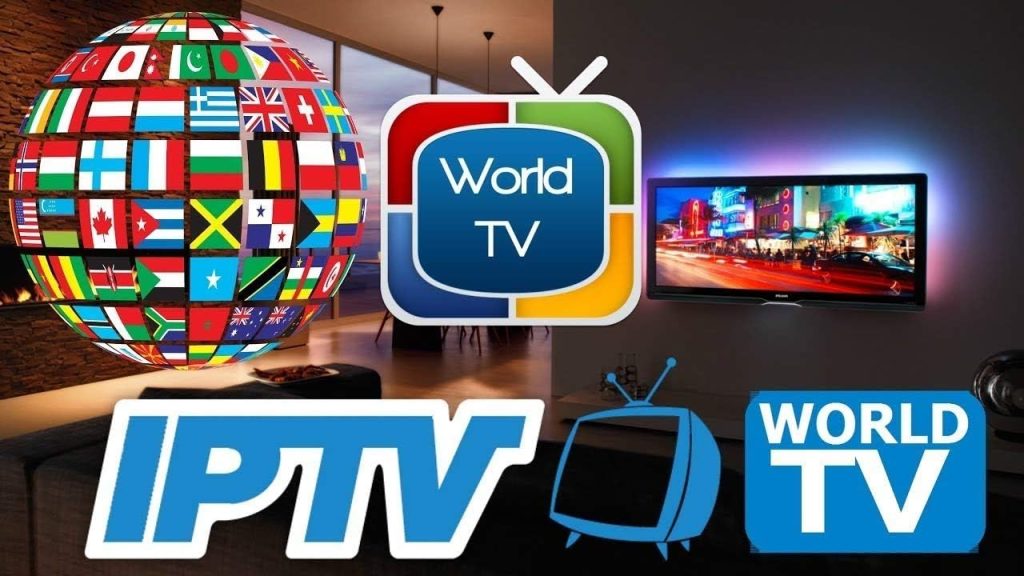Introduction to IPTV Freezing Issues
Reasons why IPTV services freeze or buffer
When it comes to IPTV services, one of the most common issues users face is buffering or IPTV Freezing. The primary reason behind this problem is the internet speed. For a seamless IPTV experience, it is crucial to have an internet connection with a minimum download speed of 7-10 MBPS and upload speed of 1-3 MBPS. Inadequate internet speed can lead to disruptions in the streaming quality, causing freezing and buffering issues for viewers.
Another factor that contributes to IPTV freezing is server overload. If the IPTV provider’s servers are overloaded with too many users streaming content simultaneously, it can result in freezing or buffering for individual users. Ensuring that the IPTV service provider has a reliable and robust server infrastructure is essential in preventing freezing issues.
Factors contributing to IPTV freezing
Aside from internet speed and server overload, other factors can also contribute to IPTV freezing. One such factor is the quality of the content being streamed. Higher resolution content requires more bandwidth to stream without interruptions. If the user’s internet connection cannot support the bandwidth requirements of the content, freezing and buffering may occur.
Furthermore, device compatibility and performance play a significant role in IPTV freezing. Older devices may struggle to handle the processing requirements of streaming high-quality content, leading to freezing issues. It is important for users to ensure that their devices are up-to-date and capable of supporting the IPTV service effectively.
Inadequate network infrastructure within the user’s home can also be a factor in IPTV freezing. Issues such as Wi-Fi interference, weak signal strength, or outdated routers can impact the stability of the internet connection, resulting in freezing or buffering during IPTV streaming sessions.
Overall, understanding the various factors that contribute to IPTV freezing is crucial in addressing and resolving these issues. By ensuring a stable internet connection, choosing a reliable IPTV service provider, and optimizing device and network settings, users can minimize freezing and buffering problems for a smoother streaming experience.
Appropriate Internet Speed
Significance of internet speed for IPTV performance
When it comes to IPTV streaming, internet speed plays a crucial role in determining the quality of your viewing experience. The speed of your internet connection directly impacts how smoothly your IPTV service functions. Having a stable and fast internet connection ensures that the data packets containing video and audio information can be transmitted without interruptions, leading to uninterrupted streaming.
Recommended download and upload speeds for smooth IPTV streaming
For optimal IPTV performance without buffering or freezing, it is recommended to have a minimum internet speed of 7-10 Mbps for downloads and 1-3 Mbps for uploads. These speeds are necessary to maintain a steady flow of data from the IPTV service provider to your device. With lower speeds, you may experience buffering, where the video stops and starts intermittently, or freezing, where the video becomes stuck and unresponsive.
Server Performance Testing
How suppliers test server performance?
Suppliers, including the Administration team, often conduct tests on the servers hosting IPTV channels to ensure optimal performance. These tests involve moving channels around to assess which configurations lead to better streaming quality. By monitoring how the servers handle different channels, suppliers can identify and address any potential issues that may cause freezing or buffering for viewers.
Popular posts
- IPTV in the US: A Closer Look at the Cutting-Edge Technology
- Best IPTV Service Providers in the USA
- StaticIPTV Reviews: The Real Deal | StaticIPTV.us
- How to become an IPTV provider US: Start your Business
- Best IPTV with No Buffering
- Best IPTV Service Works Without Buffering
- IBO TV Player Activation 101: Everything You Need to Know
Factors considered by suppliers to prevent IPTV freezing
When addressing IPTV freezing or buffering, suppliers take into account various factors to improve the viewing experience for customers. One crucial element is the internet speed available to the end user. If the internet speed is insufficient, it can result in prolonged buffering times and interrupted streaming. Suppliers prioritize checking the connectivity speed when customers report issues, as it directly impacts how efficiently IPTV services can deliver content.

Appropriate Internet Speed
Significance of internet speed for IPTV performance
In the realm of IPTV streaming, having an appropriate internet speed is essential for ensuring a seamless viewing experience. The speed of the internet connection directly influences how well IPTV services function, affecting the transmission of video and audio data packets. A stable and fast internet connection is imperative to prevent interruptions and enable uninterrupted streaming.
Recommended download and upload speeds for smooth IPTV streaming
To enjoy IPTV without buffering or freezing issues, it is advisable to have a minimum internet speed of 7-10 Mbps for downloads and 1-3 Mbps for uploads. These speeds are crucial for maintaining a consistent flow of data from the service provider to the viewer’s device. Lower speeds can lead to buffering, where the video stops and starts intermittently, or freezing, where the video becomes unresponsive.
Connectivity Speed Check
Importance of internet speed for channel loading
Having an appropriate internet speed is crucial for smooth IPTV performance. When the internet speed is low, channels may not load quickly, resulting in buffering and freezing issues. To address this, suppliers often conduct tests on the servers and may even reorganize channels to optimize performance. One of the first steps taken when customers report problems is to check the connectivity speed to ensure that it meets the recommended criteria for seamless streaming.
Actions taken by suppliers when customers report issues
When customers report IPTV buffering or freezing problems, suppliers typically investigate three main factors. Apart from internet speed, suppliers may also look into server performance and channel allocation to identify any issues affecting the streaming quality. By conducting tests on the servers and making necessary adjustments, suppliers aim to enhance the overall performance of the IPTV service and provide customers with a better viewing experience for entertainment.
Diagnosing IPTV Freezing Problems
Identifying common causes of IPTV freezing
When faced with IPTV buffering or freezing issues, it’s essential to consider several factors that could be contributing to the problem. Apart from inadequate internet speed, other common causes include server performance and channel allocation. By examining these key areas, suppliers can pinpoint the root cause of the freezing problem and take appropriate measures to address it effectively.
Troubleshooting methods to resolve IPTV buffering
To tackle IPTV buffering and freezing, suppliers often implement various troubleshooting methods. One of the primary steps is to ensure that customers have an appropriate internet speed of at least 7-10 MBPS for downloads and 1-3 MBPS for uploads. Additionally, suppliers may conduct tests on the servers to optimize performance and reallocate channels if needed. By addressing these issues proactively, suppliers aim to enhance the streaming experience for their customers and minimize instances of buffering and freezing.

Supplier Tests and Channel Adjustments
Role of supplier tests in preventing IPTV issues
Supplier tests play a crucial role in ensuring the smooth performance of IPTV services. The administration team often conducts tests on servers to identify any potential issues that may be causing buffering or freezing problems for customers. By monitoring server performance closely, suppliers can proactively address any issues that may arise and optimize the overall viewing experience for users.
How channel adjustments can improve IPTV performance?
In addition to server tests, suppliers may also opt to move channels around to enhance the performance of the IPTV service. By reallocating channels strategically, providers can optimize the streaming quality and reduce the likelihood of buffering or freezing during playback. This proactive approach to optimizing channel allocation helps ensure that customers can enjoy seamless streaming without interruptions, ultimately leading to higher satisfaction levels among users.
Customer Reporting and Issue Resolution
Customer reporting process for IPTV problems
Customers play a vital role in helping suppliers identify and resolve IPTV buffering or freezing issues. When customers encounter problems with their service, the first step is to report the issue to the supplier. This reporting process allows suppliers to gain valuable insights into the specific problems customers are facing, such as buffering delays or freezing during playback. By promptly reporting these issues, customers enable suppliers to take proactive measures to investigate and address the root cause of the problem.
Steps taken by suppliers to resolve IPTV freezing
Upon receiving reports of IPTV buffering or freezing, suppliers follow a systematic approach to diagnose and resolve the issue. One of the primary steps taken by suppliers is to check the internet speed of the affected customers. Low internet speed can often be a contributing factor to buffering or freezing problems. By assessing internet connectivity, suppliers can determine if the issue lies with the customer’s network environment. In cases where internet speed is identified as a concern, suppliers can provide recommendations or support to help customers optimize their connection for smoother IPTV streaming.
Additionally, suppliers may conduct tests on their servers and make adjustments to channel configurations to enhance IPTV performance. By monitoring server performance and strategically reallocating channels, suppliers can improve streaming quality and reduce instances of buffering or freezing for customers. These proactive measures help suppliers to address potential issues before they impact the viewing experience, ensuring that customers can enjoy uninterrupted IPTV service.
Recent Posts
- Which IPTV service supports multiple device connections simultaneously? | StaticIPTV.us
- Which IPTV service has the most reliable streaming quality? | StaticIPTV.us
- How to Use IPTV M3U Playlists in USA – Beginner’s Guide | StaticIPTV.us
- IPTV Free Trial in USA: What to Expect in 2025 | StaticIPTV.us
- IPTV Smarters Pro Setup Guide USA – Easy Instructions | StaticIPTV.us
- Best IPTV Players for Android in USA – 2025 Edition | StaticIPTV.us
- How to Install IPTV on Smart TV in USA – Step-by-Step | StaticIPTV.us
In conclusion, the collaborative efforts between customers and suppliers are essential in resolving IPTV buffering or freezing issues effectively. By promptly reporting problems and implementing proactive solutions, both parties contribute to ensuring a seamless and satisfactory viewing experience for IPTV users.
FAQs on Solving IPTV Freezing
Answering common questions about fixing IPTV freezing
Supplier tests are crucial in detecting underlying issues that lead to buffering and freezing problems in IPTV services. These tests help in monitoring server performance, enabling providers to identify and resolve potential issues promptly. By conducting regular tests, suppliers can ensure a smoother viewing experience for users by preemptively addressing any technical hitches that may arise.
Tips and tricks to prevent IPTV buffering
Channel adjustments are instrumental in enhancing the performance of IPTV services. Providers strategically reallocate channels to optimize streaming quality and minimize chances of buffering during playback. This proactive approach to channel allocation ensures uninterrupted streaming for customers, resulting in higher levels of user satisfaction with the service. By fine-tuning channel arrangements, service providers can significantly improve the overall IPTV experience for their subscribers.
Conclusion and Solutions
Summarizing the key factors causing IPTV freezing
When troubleshooting IPTV freezing issues, users must consider various factors that impact the streaming quality. The primary reason for buffering and freezing in IPTV services is inadequate internet speed. To enjoy uninterrupted viewing, a stable internet connection with speeds of at least 7-10 MBPS for downloads and 1-3 MBPS for uploads is crucial. Other factors such as network congestion, server performance, and outdated equipment can also contribute to IPTV freezing problems.
Providing effective solutions to resolve IPTV buffering issues
To address IPTV buffering concerns, service providers can implement several strategies. Regular supplier tests are essential for detecting and resolving underlying issues that lead to freezing and buffering. By monitoring server performance and conducting proactive tests, providers can ensure a smoother viewing experience for users. Additionally, optimizing channel arrangements to enhance streaming quality and minimize disruptions can significantly improve the overall IPTV experience for subscribers. Service providers should focus on preemptively addressing technical hitches to provide an uninterrupted and satisfactory viewing experience for users.